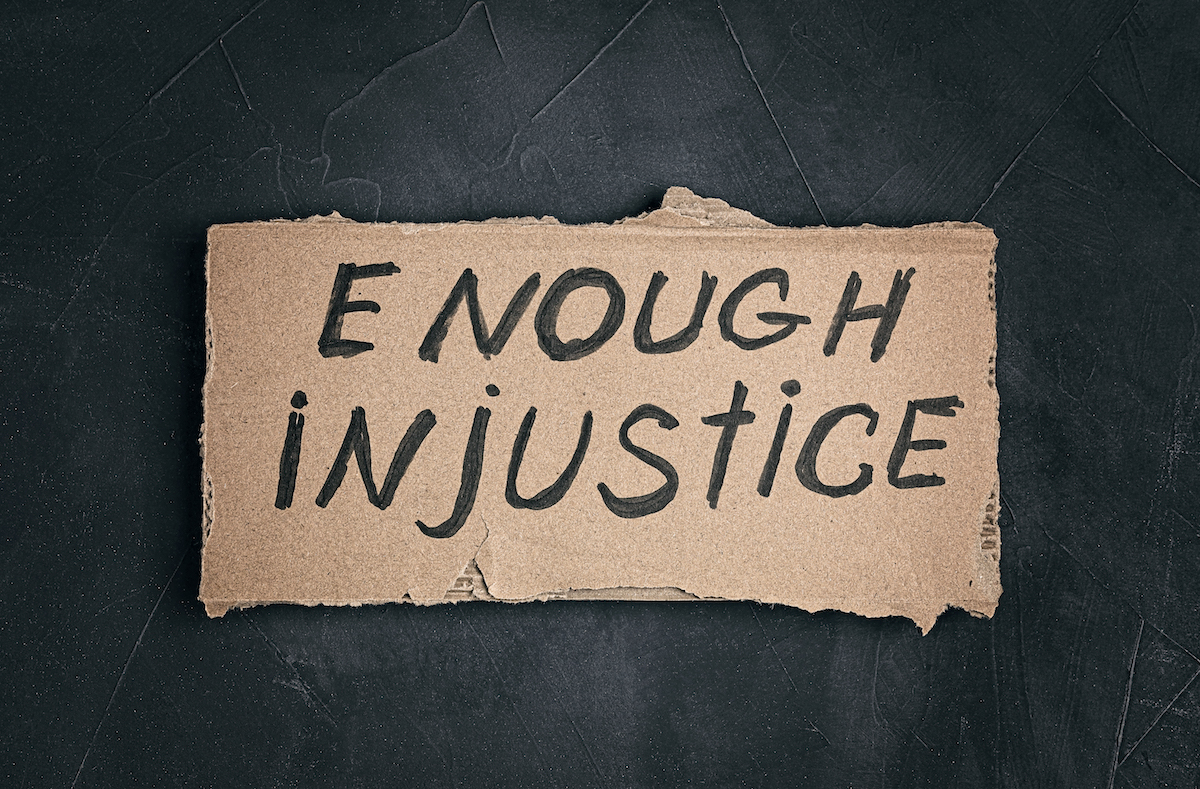Dismissed With Prejudice vs. Without
The legal field can quickly become confusing and complex. With so many terms, it can be hard to keep everything straight. One of the most confusing topics is that of the case being dismissed with prejudice or without prejudice – what does this really mean?
What is the difference between a court case being dismissed with prejudice or without prejudice? To dismiss with prejudice means that if the case is refiled in court, it cannot be tried again. Dismissal without prejudice means the opposite – if the case is refiled in court at a later date, it can then be tried again.
There are benefits to both depending on your individual case which we will get into later. Keep reading to learn more!
Dismissal With Prejudice
Once your criminal case has been dismissed with prejudice, it means that the case cannot be brought back to court on your charge again. Dismissing a case with prejudice is more serious than dismissing it without prejudice because the charges are essentially “erased.”
This type of dismissal may happen if the prosecuting attorney drops charges before the trial. A dismissal can also occur if you are found not guilty or for any other reason where part of the requirements involved in having your charges legally removed from the record had not been met.
Reasons Court Cases Are Thrown Out With Prejudice
It’s important you know whether the dismissal of said case was for jurisdictional issues (meaning an error made in filing and transporting paperwork), lack of evidence, settlement out of court with the defendant(s), or if the case has been successfully thrown out with prejudice.
A few scenarios and reasons for dismissals include:
- You filed the case without knowing the case had to be in a specific court
- The defendant who is being sued was not notified of the lawsuit
- The defendant has died or gone into bankruptcy
- Your claim is time-barred, meaning that you waited too long to bring your complaint to the court’s attention
- Another reason includes an Error of Fact. This means that another judge previously ruled on the same case and dismissed it with prejudice or refused to hear it at all, or if there is an issue with res judicata (meaning the judge has already heard similar cases). This means you are no longer able to pursue legal action based on those grounds.

Dismissal Without Prejudice
If your criminal case is dismissed without prejudice, it means that your charge(s) can be brought back to court on your charge at a later date if circumstances allow for it.
This situation may not sound preferable. However, there are some instances where dismissing a case without prejudice is more beneficial than dismissing with prejudice.
Determining whether or not you should consider having your case dismissed with or without prejudice will depend on many factors. These include how bad the offense was, how complete the dismissal is, whether or not you are applying for a job that requires background checks, etc.
Which Type of Dismissal is More Beneficial?
As long as the case is not brought back up in court on the same charge, either type of dismissal should be equivalent in terms of future consequences. One may prove more beneficial for some people. However, both types of dismissal are legally binding.
They have no bearing on another criminal case being filed against you by another entity or person. A person’s criminal record will not save them from being charged with new crimes they commit after their initial case was dismissed.
Nor does having a criminal charge dismissed with prejudice have any bearing on a person’s eligibility for things such as loans, credit cards, housing, etc. It all depends on the particular circumstances surrounding your case.
When Dismissal Without Prejudice Would Be Beneficial
An example of when a dismissal without prejudice may be helpful would be someone who filed for divorce from their partner but then found out that they were pregnant shortly after the filing occurred.
This person could then go back to court and ask that the court allow them to alter their decision regarding the case due to their recently discovered pregnancy which was undiscovered during initial proceedings.
A dismissal with prejudice would not have allowed this because once an individual’s claim has been decided through legal action, they are unable or restricted in how they can proceed further on the same counts.
On the other hand, a dismissal without prejudice allows individuals to continue legal proceedings on the same claims if new evidence comes to fruition.

When Dismissal With Prejudice Would Be Beneficial
An example of when a dismissal with prejudice may be helpful would be someone who was hit by another car who then finds out that previous damage had happened to their vehicle, but they were unaware.
This person could then go back to court and ask that the prior instances of damage done not be included in the current claim. This is because no proof existed for said damages at the time of initial filing.
A dismissal without prejudice would not have allowed this because once an individual’s claim has been decided through legal action, they are unable or restricted in how they can proceed further on the same counts.
On the other hand, a dismissal with prejudice allows individuals to continue legal proceedings on the same claims if new evidence comes into fruition.
Which is Right for You?
In conclusion, a dismissal with prejudice is more beneficial when one wants to stop an action from being brought back before legal representatives in court.
In contrast, a dismissal without prejudice has more advantages when one’s initial filing did not have enough information, or they find out about new factors in their case after an initial decision is made.
Each type of dismissal in a case can be important in ensuring that all bases are covered and that each individual is satisfied with how things turn out in the end.
Therefore, it is important for individuals who have been involved in any sort of litigation to understand these terms. This will allow them to adequately determine what course of action would be best for them, depending on what transpired during the initial proceedings.
Court Cases With Prejudice vs. Without Prejudice
Let’s take a look at some examples of case dismissals with and without prejudice.
With Prejudice
The case of “Octavio vs. Estes” is a court case that was dismissed without prejudice. The defendants in the case, who were being sued for damages related to negligence relating to a car accident, were not found guilty.
However, since there was no finding of guilt, the two parties came back to court again separately. Octavio filed charges against Estes for property damage and personal injury. Estes did not file charges against Octavio but only sought fines from her.
At this point, it would appear that both sides are seeking monetary compensation from each other. This could suggest that both parties are guilty in some manner. However, at another time in the future, they may come back to court with different requests.
The fact that this case was dismissed without prejudice means that while there could have been some guilt initially, it is not certain.
Without Prejudice
The opposite is true for “Grimes v. Smith” – the plaintiff’s civil rights charges were dismissed with prejudice. Dismissal with prejudice means that the plaintiff cannot seek further redress from the matter through legal proceedings.
This would suggest that Smith does not have to pay any monetary compensation and that there was not enough evidence to prove Grimes’ claims. This case is a very straightforward example of a court case being dismissed with prejudice. The judge found no evidence of guilt on Smith’s part.

Importance Of An Attorney
If you have been arrested or charged with a crime, you should never take the first attorney who offers to represent you. They may not be as familiar with your case as another attorney would be.
In many cases, having a criminal charge dismissed without prejudice is more beneficial than dismissing it with prejudice. However, it always depends on what your specific needs are and how severe the charges were that led to your arrest in the first place.
Suppose a non-dischargeable offense has been brought against you. In that case, hiring an attorney to help get it dismissed without prejudice may make sense. If the dismissal comes from yourself, there is no one else who can bring up those same charges against you again.
It may seem unnecessary at the time. However, it is a good idea to hire an attorney who is familiar with the court in which your case will be held.
In Conclusion
Regardless of what type of charges have been brought against you, always remember that your objective should be solely focused on getting the charges ultimately dismissed. If there are any other elements involved in working towards that goal, it can potentially hurt you instead of help you.
The most important thing that anyone facing criminal charges can do for themself is to attain an experienced criminal defense attorney without delay. This will enable them to begin fighting for you right away.
Hiring an attorney who has experience dealing with cases at the same court in which yours is being held may make all the difference when it comes to getting similar charges dismissed as well as any others that you may also be facing.








